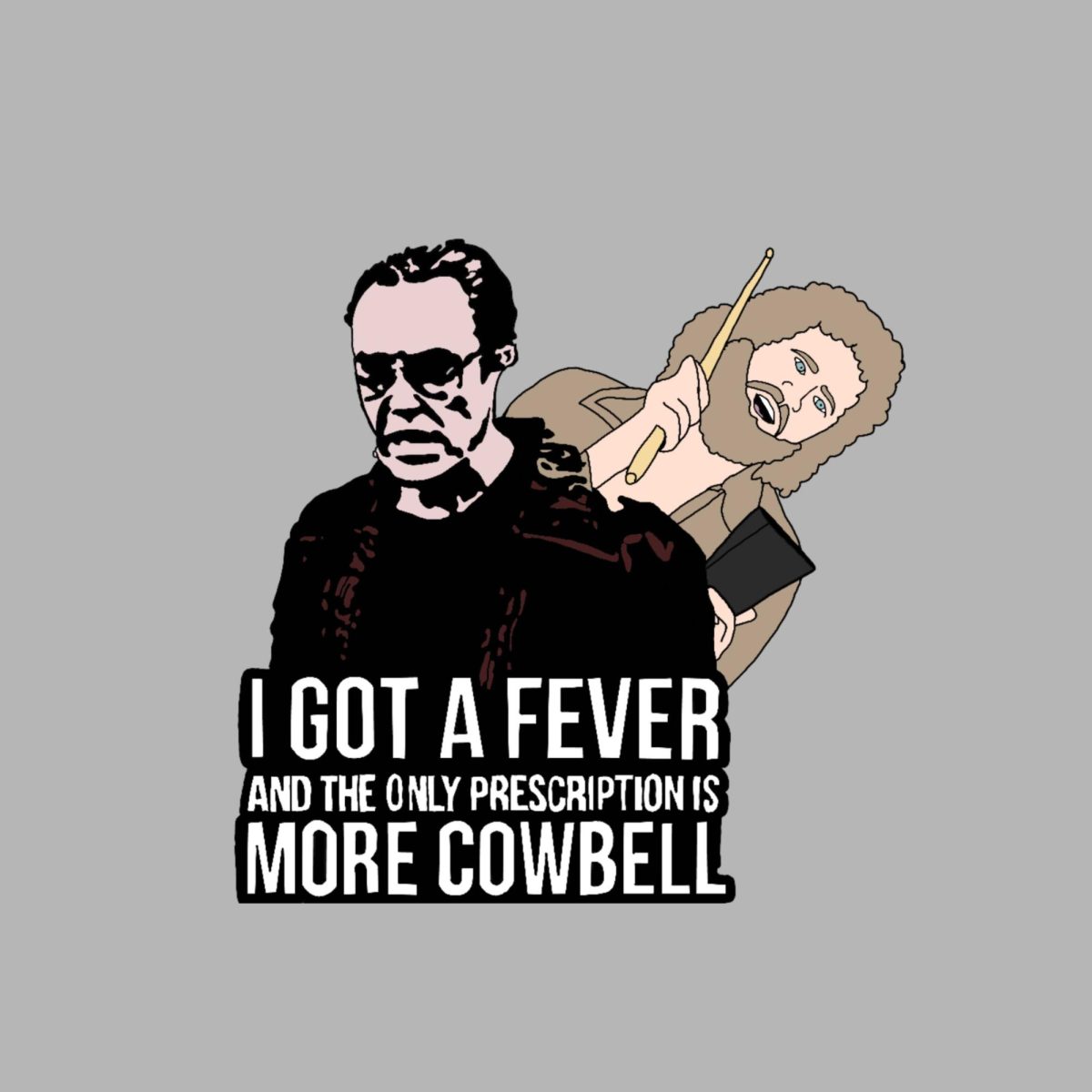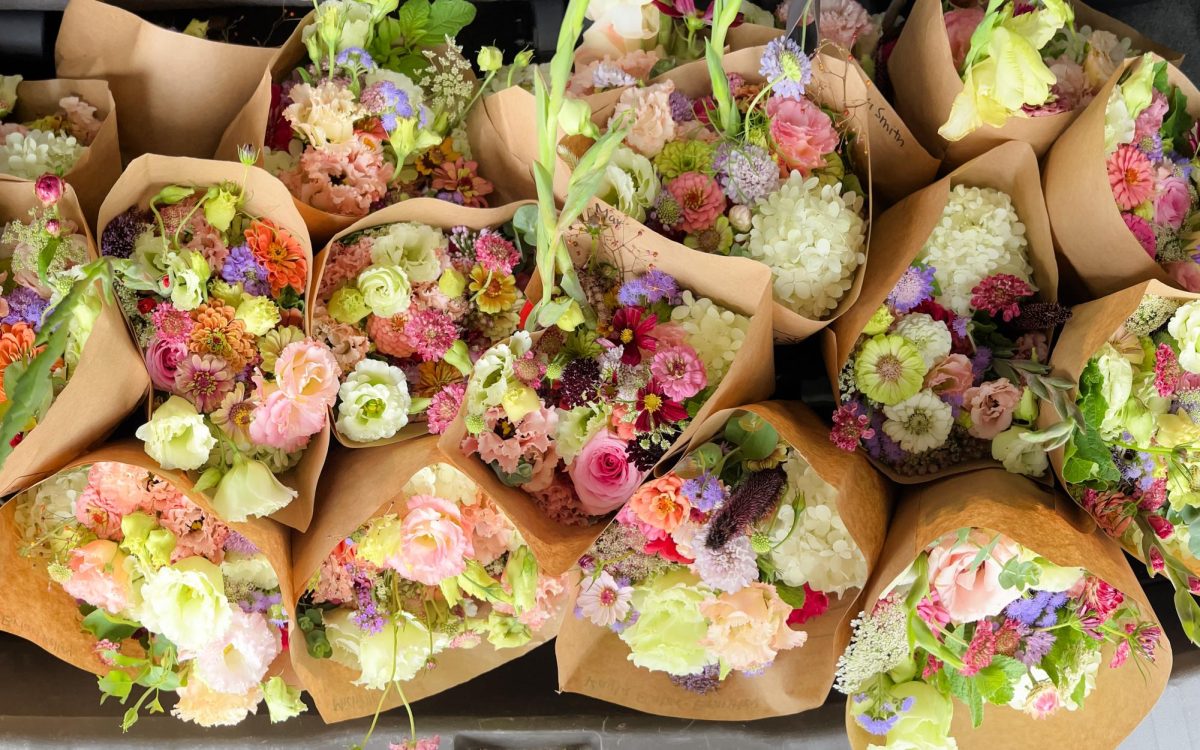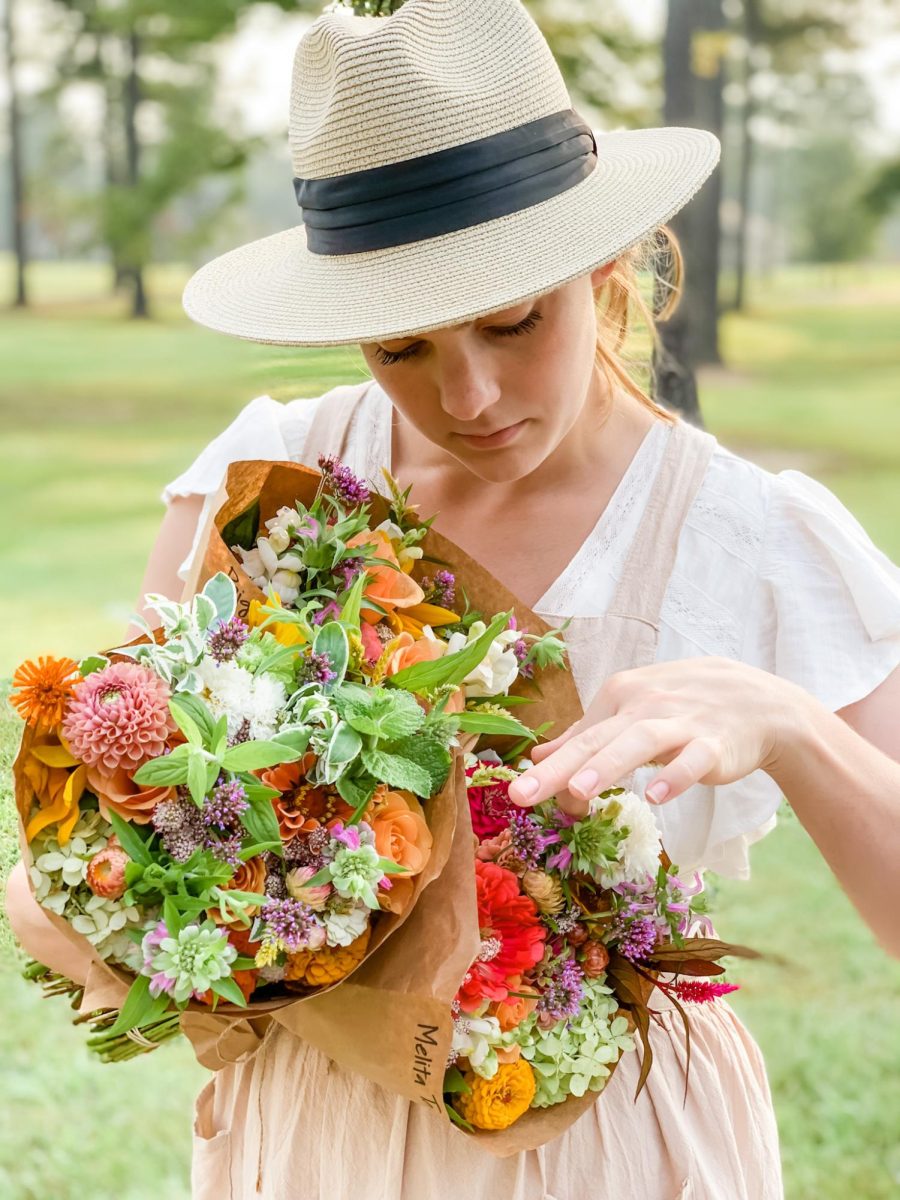Mary Dowell, Starkville resident and owner of Petal Row flower farm, stepped outside on a warm summer morning. Her small farm – an area of about 2,600 square feet in her backyard – was filled with flowers typical of the season: rainbows of feathered celosia, strawflowers with papery petals and lisianthus – the so-called “rose of the summer” – in a brilliant frill of apricot pink petals. She saw her sunflowers were nearing harvest, their blossoms on the cusp of opening to face the summer sun.
The next day, her worst fears were confirmed. Their tall stalks stood without heads and were pushed aside at odd angles. Other flowers were trampled and unrooted. A local family of deer had come in the night, a recurring headache for Dowell.
“It’s horrible because they didn’t even have the decency to eat the stalk, they just eat what you want,” Dowell said, laughing. “But, you know, we all have our things to contend with.”
The headaches and charms of Dowell’s flower farm, not much more than a promising stretch of mud on Valentine’s Day, represent much of the reality of Mississippi’s flower production, a reality that expands as more small farms crop up around the state.
“Petal Row is basically in the backyard of her home. And that’s how many of these micro-flower farms emerge,” Mississippi State University extension professor of horticulture Jim DelPrince said. “They are women-owned, women-operated. A lot of times they’re women with a family and it could be young children. So, they’re raising a family and then they’re doing the flower farming and it seems like for many of them, that model kind of works, at least for a while. They will sell directly to the end consumer. They might start things like floral subscriptions, and you could buy a flower subscription maybe for a week or for a month and whatever they’re growing, they’ll deliver to you. It’s a fresh bouquet of flowers – everyone’s happy.”
DelPrince said these local flower producers bypass wholesale markets, farmer’s markets and even local florists and sell directly to consumers, offering themselves the highest markup and customers a specialized product. DelPrince said the number of these small growers is increasing, and the Association of Cut Flower Growers, an organization created to educate, unite and support commercial cut flower growers, has seen its membership increase from 2,065 members in 2020 to 2,693 members in 2023.
Local flower producers have little to offer during Valentine’s Day when much of Mississippi is unsuitable for flower production. According to the New York Times, 80% of the cut flowers sold in the U.S. are grown in the Global South and are shipped to florists and big-box stores. Facing a limited growing season and higher labor costs, domestic flower farms struggle to compete with these international producers when it comes to selling flowers like your traditional Valentine’s Day rose.
Dowell smiled over a coffee at Umble Coffee Co., a respite from the clamoring of her four children back home. She is not threatened by international growers – she offers a different product to a steady local demand.
“Most U.S. growers are not able to compete on that level, but what we can offer is something different. A lot of U.S. growers are focusing on more niche markets that would be very difficult to ship. There’s actually a lot of cut flowers that many people have never even seen because they won’t ship well in a box,” Dowell said. “If all the florists and all the flowers that people are seeing are being are being shipped from overseas, they’re not going to choose the stuff that doesn’t ship well. So, they’re missing out on a whole segment of gorgeous cut flowers.”
To ensure a high-quality stem, Dowell succession plants, planting throughout the 32-week season that stretches from March to October. Zinnias of red, pink, orange and yellow, Dahlias of creamy white to pale pink, ornamental kale with rosettes of pink and purple are some of the flowers that Dowell markets to her subscribers. Currently, she sells about 640 bouquets a season, making sure each matches her standards of quality. Some prospective subscribers wait for more than a year to see her product.
“There is a unique connection that you have with people. One of my favorite things is walking my customers through a season of flowers because of course, you get the spring flowers that come up first and they get to experience those, and then they get to experience the summer flowers in the fall,” Dowell said. “They really get to walk through multiple seasons of flowers and see what a real flower season looks like – not just what you can get all year round.”
Some small flower producers market an experience that is more connected with the natural world. Beth Foose and her daughter Mary Saulters manage Little Bluestem, a flower farm outside Carthage, Mississippi. In addition to their two-acre flower farm, they offer a rustic Airbnb loft – which promises waking sounds of sheep – and host farm-to-fork dinners.
“Locally grown flowers have a vitality to them. They often have a much richer fragrance, they have a longer shelf life,” Foose said. “When you buy wholesale flowers, the shapes are very uniform, and that’s just not the case – every one is unique. Sometimes that’s not what florists want, they want a cookie-cutter flower. That’s not what ours are – every one of our designs are unique, and we value that.”
Foose and Saulters partly attribute the increase in the number of small Mississippi flower farms to the increased presence of this way of life on social media, where viewers might find it romantic. In their 10 years of flower farming, they have seen the expansion of digital learning materials that make the complex task of flower farming more accessible.
While flower farming can be profitable, Foose said it is hard work, and that she farms flowers for other reasons.
“We do it because we love it, not because it’s profitable. I wouldn’t recommend it, at least in Mississippi, as a way to make a lot of money. In Mississippi, we have wonderful growing conditions, but in this climate, we can’t do much with high-priced flowers like peonies and roses.”
“We believe in the power of flowers to transform lives, and we’ve seen it happen. I think that’s often what makes me go into the field in 100-degree weather and start seed trays in the cold and wet,” Foose said, continuing.
Back at Umble Coffee Co., Dowell leaned back in her chair to consider the future of her farm. She started back in the spring of 2020 when she retired from her work as a critical care nurse.
“I’m not trying to be the Rockefeller of flower farmers,” Dowell said. “I also really want to enjoy the years that my children are young, my oldest is nine and my youngest is three. And in the grand scheme of things, it just isn’t gonna last that long. I don’t want to be so consumed by this part of my life. I mean, I love this part of my life and I don’t want to give it up, but I don’t want to be consumed by it to the point that my children don’t have my intention or my energy either – because this takes a lot of energy.”





















































































